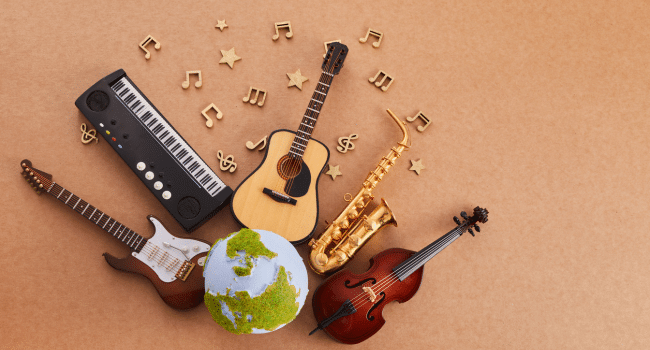Table of Contents
We can all agree that learning to play a musical instrument is an exciting journey that combines creativity, discipline, and enjoyment. Whether you’re picking up a guitar, piano, violin, banjo, or any other instrument, understanding what to expect can make the process more enjoyable and less daunting. Here, then, are the top aspects to consider when embarking on this musical adventure.
Initial Excitement and Challenges
-
The Honeymoon Phase
When you first start learning an instrument, you will likely be enthusiastic and motivated. This honeymoon phase is characterized by rapid initial progress, especially with the basics. Let’s say you want to learn to play banjo – simple songs and exercises will come together quickly, giving you a great sense of achievement.
-
Facing Frustrations
However, as you progress, the complexity increases, and you may encounter challenges that can be frustrating. It’s important to remember that frustration is a natural part of the learning process. Everyone struggles at some point, whether mastering a particular chord, getting the timing right, or coordinating both hands.
The Importance of Practice
-
Consistency Over Intensity
One of the most critical aspects of learning an instrument is consistent practice. It’s better to practice for 15 to 30 minutes every day than to cram in a few hours once a week. Regular practice helps reinforce muscle memory and gradually improves your skills.
-
Setting Realistic Goals
Set small, achievable goals for each practice session. Instead of mastering a whole piece, focus on perfecting a single section or technique. This approach makes the learning process more manageable and helps maintain motivation.
Physical and Mental Benefits
-
Cognitive Development
Learning to play an instrument has been shown to improve cognitive functions such as memory, attention, and problem-solving skills. It engages both sides of the brain, enhancing your overall mental agility.
-
Physical Coordination
Playing an instrument requires fine motor skills and hand-eye coordination. You’ll notice improvements in your agility and physical coordination as you practice. This can be particularly beneficial for children, aiding their overall physical development.
Choosing the Right Instrument
-
Personal Interest and Enjoyment
Select an instrument that genuinely interests you. If you love the piano’s sound or the banjo’s versatility, you’re more likely to stick with it. Enjoyment is a key factor in maintaining long-term motivation.
-
Practical Considerations
Consider the practical aspects such as the instrument’s size, portability, and cost. For example, a piano is a significant investment and requires space, while a guitar is more affordable and portable.
Seeking Professional Guidance
-
Finding a Good Teacher
A good teacher can make a huge difference in your learning experience. They provide structured lessons, personalized feedback, and motivation. Look for a teacher with experience, a good teaching style, and who you feel comfortable with.
-
Online Resources and Communities
In addition to formal lessons, plenty of online resources are available, including tutorials, forums, and communities. These can be great for supplementary learning and connecting with other learners.
Dealing with Plateaus
-
Recognizing Plateaus
It’s common to hit plateaus where progress seems to stall. Recognizing that this is normal can help you stay motivated. Plateaus are often a sign that your brain and body are consolidating new skills.
-
Strategies to Overcome Plateaus
To overcome plateaus, try changing your practice routine, focusing on different aspects of playing, or even taking a short break. Sometimes, stepping away for a few days can provide a fresh perspective.
Image attributed to Pixabay.com
Read more on KulFiy
Expert Tips for Finding Quality Instruments in Your Local Area
